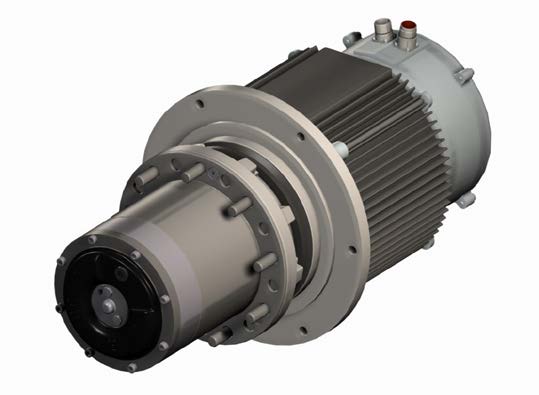Global Electric Vehicle (EV) Traction Motor market is expected to reach USD 64.00 Billion by 2030, at a CAGR of 42% from 2021 to 2030. The global Electric Vehicle (EV) Traction Motor Market is expected to witness a significant growth rate shortly. Growing demand for alternative fuel vehicles, increasing awareness about the environment, and government initiatives to promote electric vehicles are some of the major factors driving the growth of the market. Furthermore, advancements in technology and the increasing availability of electric vehicles with improved performance are expected to further propel the market growth.
The global Electric Vehicle (EV) Traction Motor Market is segmented based on vehicle type, power rating, technology, and region. Based on vehicle type, the market is divided into passenger vehicles, commercial vehicles, and two-wheelers. Based on power rating, the market is divided into below 50 kW, 50 kW to 100 kW, and above 100 kW. The technology segment is further divided into AC, DC, and hybrid. Region-wise, the market is analyzed across North America, Europe, Asia-Pacific, and LAMEA.
The major players operating in the global Electric Vehicle (EV) Traction Motor Market include Continental AG, Robert Bosch GmbH, Johnson Electric, Mitsubishi Electric Corporation, Nidec Corporation, Hitachi Automotive Systems, Ltd., Toyota Motor Corporation, Dana Limited, TM4 Inc., and Zhejiang Geely Holding Group. These players have adopted various strategies such as product launches, partnerships, collaborations, mergers & acquisitions, and joint ventures to strengthen their foothold in the market.
Key Findings:
Asia Pacific Region Electric Vehicle (EV) Traction MotorMarket Share in 2020 was 35.7%
Restraints of Electric Vehicle (EV) Traction Motor Market
- High cost: Electric vehicles are more expensive than their gas-powered counterparts, mainly due to the high cost of their battery packs and electric motors.
- Lack of charging infrastructure: The lack of charging infrastructure and public charging stations is a major obstacle to electric vehicle adoption.
- Range anxiety: Range anxiety is the fear of running out of charge before reaching a destination. It is one of the biggest barriers to electric vehicle adoption.
- Battery degradation: Electric vehicle batteries degrade over time, leading to a decrease in range and battery life.
- Durability: Electric motors and batteries are not as durable as their gas-powered counterparts, leading to higher maintenance costs.



































